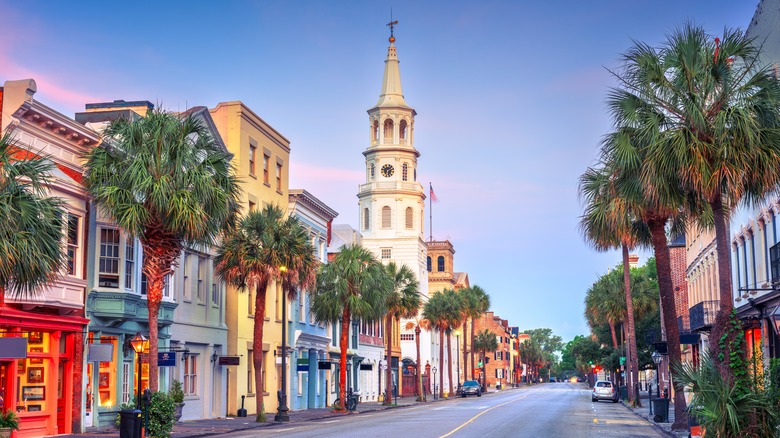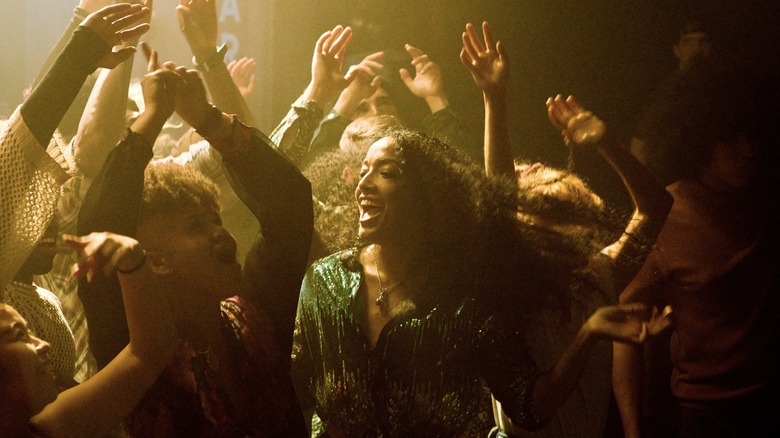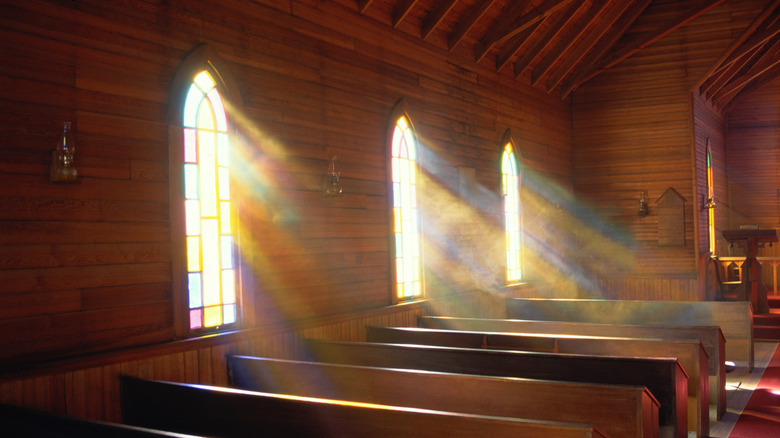The Bizarre South Carolina Law That Bans One Activity After Midnight
Ah yes, South Carolina. Land of gators, birds, and beaches. From the watery lowcountry to the forested mountains, the Palmetto State is also known for its peanuts, golf courses, nice weather, and Southern civility. That sounds great and all, but we might need to spice things up, especially come the weekend. "How about heading out to a bar or club to go rub-a-dub and do some drankin'?," you ask? Whoa, whoa, buddy, slow down. Have you checked the time? If it's 11:52 p.m. on a Saturday you'd better hurry up, because you'd only have seven minutes left to hit the floor and bust a move or whatever. Then, you'd have to do your dancing elsewhere.
Yes, judging by legislation it does seem like South Carolina's got a weird hang-up about dancing. Some folks summarize the law as saying, "No dancing after midnight on Saturday," but it actually means no dancing on Sunday. Titled "Operation on Sunday forbidden," the South Carolina Code of Laws, Title 52, Chapter 13 (Dance Halls), Section 52-13-10 reads, "It shall be unlawful for any person to keep open or admit persons to any public dancing hall owned or operated by him or to allow any person to continue thereat between the hours of twelve o'clock, midnight, Saturday and twelve o'clock, midnight, Sunday." The current law dates to 1962, but builds on previous iterations version from 1952, 1942, 1932, and (yowzas) 1923. So yeah, the world and popular culture have changed quite a bit since then, dancing included. This law, however? Not so much.
No dancing on Sunday
Anyone who's got an eye for details can easily poke loads of holes in South Carolina's ban on Sunday dancing. The law code focuses on "dance halls," which "shall be and remain closed to the public between" midnight and midnight on Sunday and Monday. And just to clarify: the actual law reads midnight on Saturday and Sunday which technically speaking would mean a 24-hour period starting at 12 a.m. Sunday and ending at 12 a.m. Monday, but we're assuming those who made the law in 1962 had as much of a hard time as people in the present understanding that midnight is the start of the day, not the end.
Anyway, about those loopholes. What if you own a restaurant, put on some music, and people just get up and start dancing? What if an establishment isn't legally characterized as a "dance hall" but people dance inside it, anyway? What if you're outside in a parking lot or at a gas station and people start dancing? What if you own a dance hall and you yourself dance in it past midnight as a non-patron? Such questions aren't covered by South Carolina's no-dancing law, though they might be accounted for elsewhere in the state's law code.
That being said, South Carolina's no-dance law does include some odd specifics, such as no dance halls within one-quarter of a mile of an active church or cemetery used within the last five years. Also, counties like Bamberg, Charleston, Darlington, Georgetown, Lexington, Newberry, Sumter, and more can give or revoke dance hall licenses (mandatory for operation) seemingly at will.
The law likely has religious origins
Because South Carolina's no-dancing-on-Sunday law pertains to Sunday, specifically, it stands to reason that it has religious origins. And indeed, as Constituting America explains, South Carolina has a deeply religious history. South Carolina's Constitution of 1778 actually dubs the "Christian protestant religion" the state's official religion. The constitution itself is, "the most explicitly Christian and Protestant of our first states' fundamental laws," and its sections on religion are "more unambiguous, detailed and lengthy than those of any other state." It's not a huge leap to see how deep religiosity yielded a no-no attitude toward dancing on Sunday.
As for penalties, the 1962 law says that first-time offenders pay a fine from $10 to $50 (about $105 to $522 when adjusted for inflation). Second-time offenders pay between $50 and $100 or spend 30 days in prison. Multiple violations within a 24-hour time period are possible, with each violation incurring the same penalty. Such fines seem to target establishments and not dancers.
As ABC 4 News says, there was an attempt in 2016 by state lawmakers to repeal the no-dancing law and 10 other outmoded laws, like a law making it illegal to live together outside of marriage, or a law making it all but impossible to sell things on Sunday. But, given the current law code and later news coverage about this topic, it seems that the revamped legislation failed. Looks like South Carolinians will just have to cut loose at home on Sunday.


